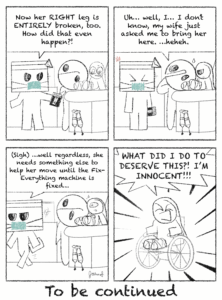Let’s talk about something that hits close to home: debt.
We go through four years of college education to prepare for a bright future beyond schooling, whether it be graduate school or entering the workforce. However, our higher education comes at a steep cost, and many of us are saddled with student debt post-graduation.
Money, unfortunately, is inescapable. But despite the daunting financial problems we face, it is up to us millennials to collectively examine our country’s financial situation.
Our country is headed toward $20 trillion worth of debt, which is larger than the economies of China, Japan, and Germany combined. This does not bode well for our future economic prospects, and there are several reasons why.
My goal here isn’t to create fear; rather, I am here to give a sobering argument as to why we need to have a constructive conversation on addressing national debt. Debt can spur on innovation and productivity, but at the rate that we’re going, these positive perks can no longer be sustained. Regardless of your personal views, we need to start talking about the long-term national debt sooner rather than later.
The growing national debt hikes up interest rates. This will lead to higher payments on car loans, mortgages, and student debt. As of currently, the federal government is projected to spend $6 trillion dollars on interest costs toward the debt over the next 10 years, with roughly $223 billion spent in 2016 alone. It is an astronomical burden on our nation’s mandatory budget because this “program spending” on debt interest leaves very little room for discretionary funding. Discretionary funds are crucial because they are used to invest in social programs and services like Social Security, education, and science initiatives, to name a new. Reducing deficit while debt interest costs are rising requires emergency spending cuts that will come out of discretionary funding. And with the recent controversial budget cuts outlined by President Trump in his fiscal budget plan, the fiscal outlook for our country is more uncertain than ever.
Now that you’ve gotten some background on the national debt and federal budget, let’s examine their combined impact. Our economy is growing extremely slowly because the national debt reduces investment in the economy. The Congressional Budget Office estimates that by 2046, the economy will be five percent smaller. Rising interest rates crowd out growth investment in the economy and it is more difficult than ever to break into the job market. Baby boomers are living longer and tapping into Social Security funds faster than before. In other words, we are facing more and more urgent fiscal challenges by the day.
We have more reasons than ever to raise awareness of the national debt. There is a direct connection between our nation’s fiscal health and the economy we will inherit from our current government. Our economic opportunity, ability to pay off our student loans, and chances to start business initiatives are at stake. Millennials will have more and more political power and sway as our generation becomes a majority of voters. It is critical for us to educate our peers and help them gain a basic comprehension on this issue which will be critical to our generation’s problems.
As inheritors of the economy, it is up to us to help change the fate of our fiscal future. I implore you to have an open discussion on this issue with fellow peers. Spread the word to your network of family and friends to let them know how worrisome America’s long term fiscal outlook is and how it will impact future generations.
Most importantly, we need to take action. The Up to Us movement initiative is an initiative for college students to engage their peers by hosting events on campus and initiating a broader conversation. The key to solving a problem is to begin a conversation and it starts with you.
Zhao is a member of the Up to Us initiative mentioned in this piece.

